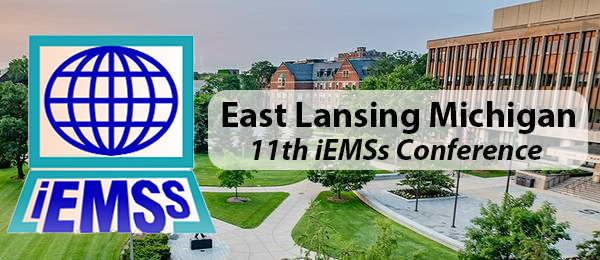Keywords
Great Barrier Reef; decision support; uncertainty; pathways analysis
Start Date
7-7-2022 12:00 PM
End Date
7-7-2022 12:20 PM
Abstract
Coral ecosystems across the globe are projected to face severe threats from climate change even under the 1.5°C warming set by the Paris Agreement. The Reef Restoration and Adaptation Program (RRAP) aims to help sustain the Great Barrier Reef (GBR) in the face of climate change. The GBR is the world’s largest coral reef and a UNESCO world heritage site with high cultural, ecological, and economic significance. A range of interventions are currently being considered to improve the reef’s resilience to the impacts of climate change, from local targeted seeding of cultivated corals through to Solar Radiation Management via cloud brightening. Understanding the relationship between these interventions and desired beneficial outcomes, as well as their influence on the marine ecosystem is mired in deep uncertainty. The Adaptive Dynamic Reef Intervention Algorithms (ADRIA) decision support platform has been developed to meet the challenge of informing and guiding future research and possible deployment pathways. We demonstrate an application of ADRIA to a case study on the GBR, highlighting scenario analyses conducted to identify robust pathways toward successful deployment of interventions. ADRIA is used to identify how best to target interventions across spatial and temporal scales as well as key sources of intervention deployment uncertainties. We show that intervention deployments informed by ADRIA lead to consistently higher net benefits and risk reductions than unguided interventions.
ADRIA: A guidance system for intervention research, development and deployment on coral reefs under uncertainty
Coral ecosystems across the globe are projected to face severe threats from climate change even under the 1.5°C warming set by the Paris Agreement. The Reef Restoration and Adaptation Program (RRAP) aims to help sustain the Great Barrier Reef (GBR) in the face of climate change. The GBR is the world’s largest coral reef and a UNESCO world heritage site with high cultural, ecological, and economic significance. A range of interventions are currently being considered to improve the reef’s resilience to the impacts of climate change, from local targeted seeding of cultivated corals through to Solar Radiation Management via cloud brightening. Understanding the relationship between these interventions and desired beneficial outcomes, as well as their influence on the marine ecosystem is mired in deep uncertainty. The Adaptive Dynamic Reef Intervention Algorithms (ADRIA) decision support platform has been developed to meet the challenge of informing and guiding future research and possible deployment pathways. We demonstrate an application of ADRIA to a case study on the GBR, highlighting scenario analyses conducted to identify robust pathways toward successful deployment of interventions. ADRIA is used to identify how best to target interventions across spatial and temporal scales as well as key sources of intervention deployment uncertainties. We show that intervention deployments informed by ADRIA lead to consistently higher net benefits and risk reductions than unguided interventions.



Stream and Session
false